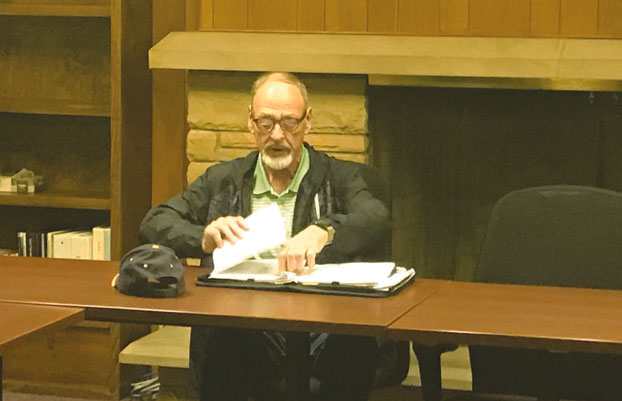Buildings and Grounds discusses ADA compliance, round table with Northeast State
Published 8:13 am Monday, February 10, 2020

- Star Photo/Amber Wadovick Brad Johnson said Northeast's presence in Carter County is invaluable. The Buildings and Grounds committee has been seeking conversations wiht the community college in order to find ways to convince them to stay in the county.
Representatives from Northeast State came to Tuesday’s Buildings and Grounds meeting to discuss the situation with the community college’s eventual departure and what could be done to alleviate that possibility.
“We think your presence adds to this county,” Brad Johnson said.
The committee has discussed previously their intentions to meet with the community college about this issue for several months. Northeast said the Tennessee Board of Reagents will not pay for a building the TBR does not own.
“We know this building is dated,” Robert Acuff said. “We know it does not suit your needs. It is not ADA-compliant in any respects.”
The Workforce Development complex in which Northeast resides only recently fell back under Carter County’s jurisdiction, and already Buildings and Grounds has begun work on a variety of improvement projects, including repaving the parking lot, getting interior and exterior work done and starting work on an ADA Transition plan throughout the county.
“We have got to make sure we can manage this property,” Austin Jaynes said.
Conversations will continue in March or April’s meeting.
After years of patchwork, repairs and prayers, the courthouse boiler is officially reaching its limit, according to Mayor Rusty Barnett.
Any replacement, however, would be well over the minimum requirements for an RFP, so the board made the motion, which approved unanimously.
On the subject of the ADA Transition plan, Director of Carter County Emergency Management Gary Smith explained what the commission needs to do in order to be compliant, and he emphasized it is not as simple as fixing one hand rail a year and calling it a day.
“The first year, we are going to evaluate programs within the county […] to make sure they are meeting the needs of the citizens,” Smith said.
2021 is when the county would need to look at which projects need funding first in order to meet ADA standards. He said he and the investigators identified a list of easy to difficult tasks in order of priority, but this transition plan as a whole will take a while.
“I project this plan to run 35 years minimum,” he said.
Some commissioners expressed concern at how much effort the government required of Carter County each year in order to be compliant.
“We do not have to do this all at once,” Johnson said.
Smith, meanwhile, emphasized the government cares about whether a county is complying with the “spirit and intent” of the law, rather than just caring about the bare minimum.
“This should have happened in 1992,” Smith said. “I take these things seriously.”





